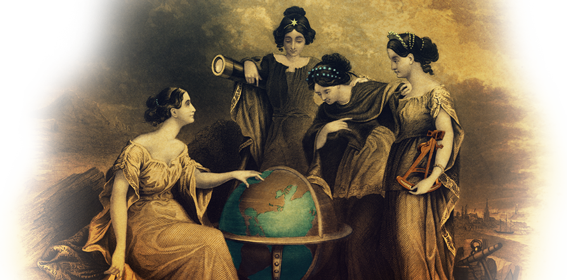Diplomatic Expansionism
One of the paramount aims of the United States in declaring independence from the British empire in 1776 was to qualify under the “law of nations.” As formulated earlier in the eighteenth century by Emer de Vattel, a Swiss jurist, the “law of nations” applied to countries in Europe that deemed themselves to be “civilized” and “Christian.” To be included meant diplomatic negotiations, treaty agreements, and limited war. To be excluded meant violence could be violence.
The United States had every incentive to seek inclusion in the “law of nations.” In taking the unusual step of declaring independence, rebellious Americans preferred limited war when facing the British empire, then the mightiest military force in the world. Inheriting an imperial mindset, independent Americans wanted license granted by the “law of nations” to determine who was “civilized” and who was not. The “law of nations” served to dictate decidedly unequal terms of international relations, but it also served to sanction the infliction of terrible violence upon enslaved Africans and Native Americans.
American diplomats spent the early decades of independent nationhood urging that neutrality reign in the Atlantic world, less out of principle and more out of self-interest, in order to bolster the national economy by trading with all sides in war-ravaged Europe. Instead, the British and French empires, at war with each other, pressured the United States to choose one side or the other. Both harassed American commercial shipping until the United States went to quasi-war with France in 1798, and to war with Britain in 1812.
Long after attaining independence in 1783, the United States would remain in the shadow of the more powerful British nation and empire. Yet the thin-skinned Anglophobia voiced by journalist Robert Walsh in 1819 gradually gave way to a new tone of Anglophilia rehearsed by novelist Harriet Beecher Stowe in 1855. Even as it settled their contested northern border in the 1840s, the United States increasingly partnered with the British empire around the world, sharing sufficient imperial arrogance to make treaties about Central American canals without consulting Central American countries.
Diplomatic reformers argued that it was high time, in the 1830s, for the United States to professionalize its ability to conduct international relations. The historian Jonathan Elliott devoted himself to codifying American diplomatic records, which were in bureaucratic disarray. More ambitiously, the jurist Henry Wheaton updated Vattel in codifying a new version of international law for the nineteenth century, albeit a version not much more respectful of the world beyond Europe.
EXPLORE THE DIGITIZED BOOKS
Click on a title below to access a transcribed excerpt, and a fully digitized book.
Robert Walsh, Jr. An Appeal from the Judgments of Great Britain Respecting the United States of America. Philadelphia: Mitchell, Ames, and White; William Brown, Printer, 1819.Voicing a defensive nationalism in the face of British criticism of American culture, Walsh lambasted perceived British imperial aggression throughout the world.
Theodore Lyman. The Diplomacy of the United States. Being an Account of the Foreign Relations of the Country, from the First Treaty with France, in l778, to the Treaty of Ghent, in 1814, with Great Britain. Boston: Wells and Lilly, 1826.Anticipating peace in the wake of the Napoleonic Wars in Europe, Lyman lamented that the American principle of neutrality had not achieved the status of international law.
Jonathan Elliot. The American Diplomatic Code, Embracing a Collection of Treaties and Conventions Between the United States and Foreign Powers: From 1778 to 1834. Washington DC: J. Elliot, 1834.Elliot believed that the United States’ “elevated rank in the family of Nations” necessitated a more systematic approach to preserving its scattered diplomatic records.
Prize Essays on a Congress of Nations, For the Adjustment of International Disputes, and for the Promotion of Universal Peace without Resort to Arms. Boston: Published by Whipple and Damrell, for the American Peace Society, 1840.Formed in 1828, the American Peace Society espoused the idea of a congress of nations as a way to prevent war in the world, long before the United Nations was established in 1945.
Robert Greenhow. The History of Oregon and California, and the other Territories of the North-West Coast of North America.... Boston: Charles C. Little and James Brown; London: John Murray, 1845.Librarian to the State Department, Greenhow drafted this history in order to stake the United States’ claim to Pacific coast territory contested by the British empire.
Eustace Clare Grenville Murray. Embassies and Foreign Courts: A History of Diplomacy. London and New York: G. Routledge and Co., 1855.Jointly published in London and New York, this broad diplomatic history reflected an increasing international partnership between Britain and the United States.












